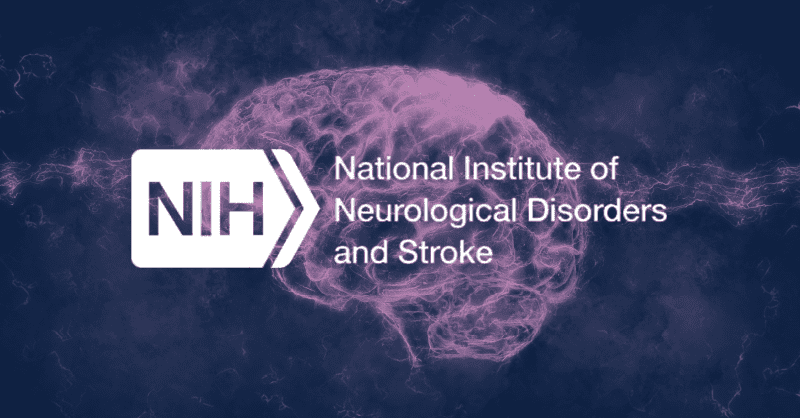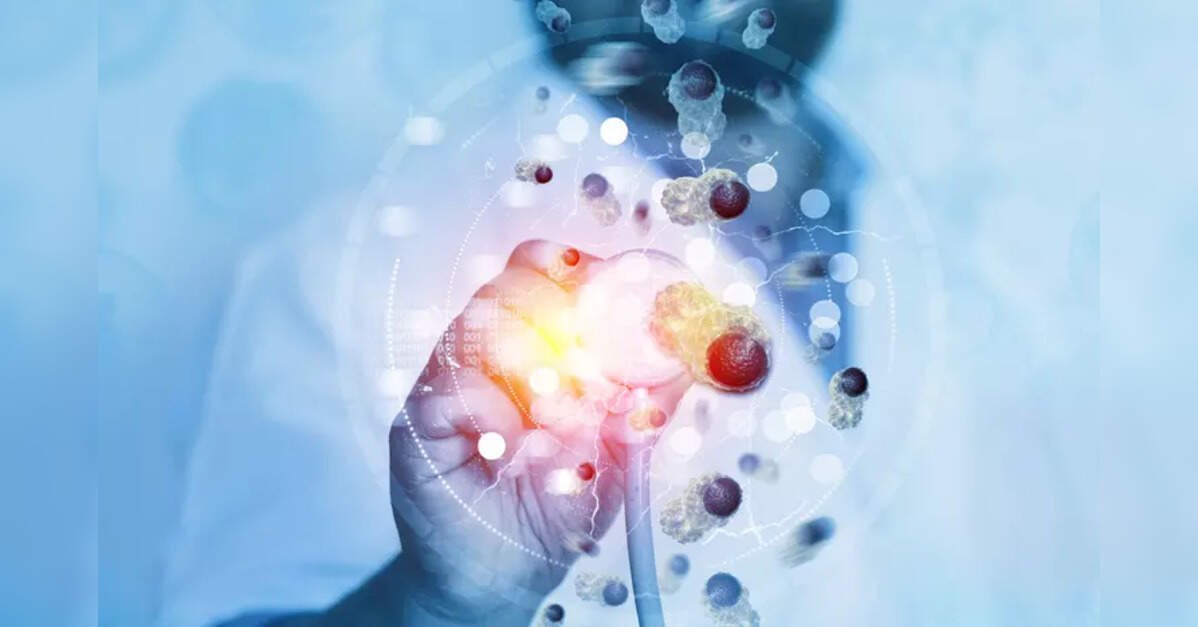Thank you for visiting the NIH Pain Consortium.
The website www.painconsortium.nih.gov is no longer available. We are currently in the process of migrating its content to this site.
We apologize for any inconvenience and appreciate your patience during this transition.
The NIH Pain Consortium was established to enhance pain research and promote collaboration among researchers across the many NIH Institutes and Centers that have programs and activities addressing pain. To this end, the following goals have been identified for the Pain Consortium:
- To develop a comprehensive and forward-thinking pain research agenda for the NIH – one that builds on what we have learned from our past efforts.
- To identify key opportunities in pain research, particularly those that provide for multidisciplinary and trans-NIH participation.
- To increase visibility for pain research – both within the NIH intramural and extramural communities, as well as outside the NIH. The latter audiences include our various pain advocacy and patient groups who have expressed their interests through scientific and legislative channels.
- To pursue the pain research agenda through Public-Private partnerships, wherever applicable. This underscores a key dynamic that has been reinforced and encouraged through the Roadmap process.
Pain Consortium Members
Executive Committee
Dr. Walter Koroshetz
Director, National Institute of Neurological Disorders and Stroke (Chair)
Dr. Lindsey Criswell
Director, National Institute of Arthritis and Musculoskeletal and Skin Diseases
Dr. Helene Langevin
Director, National Center for Complementary and Integrative Health
Dr. Nora D. Volkow
Director, National Institute on Drug Abuse
Dr. Shannon Zenk
Director, National Institute of Nursing Research
Institutes and Centers
National Institute of Neurological Disorders and Stroke (NINDS)
Primary Representative: Dr. Michael Oshinsky
NINDS invests in pain research that focuses on the mechanisms of pain associated with neurological disorders. This includes research on central and peripheral mechanisms of pain, pain pathways, circuits and processing. NINDS supports model and device development, target discovery and research spanning basic/ pre-clinical, clinical and translational science.
Learn more: Focus on Pain Research
National Center for Complementary and Integrative Health (NCCIH)
Primary Representative: Dr. Wen Chen
NCCIH’s mission is to determine, through rigorous scientific investigation, the fundamental science, usefulness, and safety of complementary and integrative health approaches and their roles in improving health and health care. Complementary and integrative approaches include nutritional, psychological, and physical interventions. With a strong focus on nonpharmacologic strategies, NCCIH supports research that explores how these approaches can improve pain management within a whole-person health framework. NCCIH also leverages cutting-edge biomedical and computational technologies to drive fundamental, translational, and clinical research, promoting holistic, preventative health strategies that enhances the well-being of all Americans. In alignment with national health priorities, research supported by NCCIH aims to inform decision-making by the public, health care professionals, and policymakers regarding the integrated use of these approaches.
Learn more:
National Institute of Nursing Research (NINR)
Primary Representative: Dr. Karen Kehl
NINR supports pain research to enhance pain management across the lifespan, with an emphasis on improving quality of life for individuals with acute and chronic pain. NINR-funded studies explore personalized pain management strategies, symptom science and palliative care. The institute prioritizes access to effective pain care.
Learn more: NINR Home Page
National Institute of Dental and Craniofacial Research (NIDCR)
Primary Representative: Dr. Melissa Ghim
NIDCR supports research on pain conditions pertaining to the oral and craniofacial region. This includes studies on temporomandibular disorders (TMDs), neuropathic pain, pain following dental procedures, oral cancer pain, and pain related to oral cancer treatments. NIDCR emphasizes understanding peripheral and central pain mechanisms, from the development and maintenance of chronic pain to its endogenous resolution and/or disruption. The Institute also prioritizes the development of novel diagnostic and therapeutic interventions, modeling, prevention research, and other pain management approaches relevant to the pain conditions of interest to ultimately improve patient outcomes.
Learn more: Pain (oral, facial)
National Institute on Drug Abuse (NIDA)
Primary Representative: Dr. Will M. Aklin
NIDA supports research on the intersection of pain and substance use, including the development of safer pain management strategies to reduce the risk of opioid misuse and addiction. NIDA funds studies on pain treatment, the neurobiology of pain and addiction, and strategies to prevent and treat opioid use disorder in patients with chronic pain.
Learn more: Chronic Pain Overview
National Cancer Institute (NCI)
Primary Representative: Dr. Rachel Altshuler
NCI supports preclinical, translational, and clinical research on cancer-related pain caused by malignancies, diagnostic procedures, and cancer-directed treatments. This includes chemotherapy-induced peripheral neuropathy, tumor associated pain, surgical pain, chronic pain syndromes and phantom pain. NCI emphasizes improving pain management and quality of life for cancer patients and survivors.
Learn more: Side Effect of Cancer – Pain
National Institute on Aging (NIA)
Primary Representative: Dr. Dave Frankowski
NIA focuses on chronic pain in aging populations, who are disproportionately affected by pain-related conditions. Research priorities include understanding mechanisms underlying the pain experience with aging; enhancing assessment, prevention, and management strategies for pain in midlife and older adults; and improving the health of midlife and older adults aging populations suffering from pain. NIA also supports studies on pain perception and management in individuals with Alzheimer’s disease and related dementias.
Learn more:
National Institute of Child Health and Human Development (NICHD)
Primary Representatives: Dr. Sue Marden and Dr. Helena Ahn
NICHD supports research on pain management in neonatal and pediatric care, pain related to gynecological conditions, and rehabilitation for individuals with physical impairments. The institute prioritizes pain management for critically ill and injured children, pain mechanism and management of gynecologic conditions including endometriosis-associated pain, vulvodynia/vestibulodynia, dysmenorrhea, chronic pelvic pain, and other gynecologic pain syndromes, acute and chronic pain management of persons with physical and intellectual disabilities, and safe and effective pain treatments during labor, childbirth, and postpartum care.
Learn more: NICHD Home Page
National Institute of Arthritis and Musculoskeletal and Skin Diseases (NIAMS)
Primary Representative: Dr. Rebecca Lenzi
NIAMS supports research on pain related to bones, joints, muscles, and skin. This includes studying pain mechanisms in conditions like arthritis, lupus, and fibromyalgia, as well as improving pain management for musculoskeletal and skin disorders. NIAMS aims to develop effective therapies to reduce pain and improve quality of life.
Learn more: NIAMS Pain Research
National Institute of Mental Health (NIMH)
Primary Representative: Dr. Alex Talkovsky
NIMH is interested in research studying the interactions between mental illnesses and co-occurring conditions to provide additional insight into the causes and facilitators of mental illnesses, as well as provide pathways to improve the provision of interventions and services to ultimately prevent and treat mental illness and comorbidities and achieve better outcomes for people with mental illnesses. NIMH works with other NIH institutes and centers to support research to address treatable medical comorbidities linked to premature mortality among people with serious mental illness.
Learn more: Chronic Illness & Mental Health
National Eye Institute (NEI)
Primary Representative: Dr. Houmam Araj
NEI supports research on pan related to ocular conditions, including dry eye disease, post-surgical pain, and neuropathic ocular pain. Research focuses on understanding pain mechanisms in the eye and developing treatments to alleviate visual-system related pain.
Learn more: NEI Home Page
National Institute of General Medical Sciences (NIGMS)
Primary Representative: Dr. Zuzana Justinova
NIGMS funds basic research aimed at understanding the principles, mechanisms, and biological processes that underlie living organisms. NIGMS also supports research in several specific clinical areas that include anesthesiology and pain during and after surgical procedures. Studies of pain include research on biological mechanisms involved in the transition of acute to chronic postsurgical pain and its resolution, as well as perioperative pain management.
Learn more: NIGMS Home Page
National Institute of Diabetes and Digestive and Kidney Disorders (NIDDK)
Primary Representative: Dr. Christopher Mullins
NIDDK supports broad basic, translational, and clinical research and development of new measures, tools, treatments, and analytic approaches that address critical questions of pain as a component of diabetic neuropathy; digestive diseases, nutritional disorders, and obesity; as well as kidney, urologic, and hematologic diseases. Specific NIDDK disorders of key importance include, but are not limited to: Chronic inflammatory diseases of the pancreas and biliary tract; functional gastrointestinal and motility disorders, such as irritable bowel syndrome, non-ulcerative dyspepsia, gastroparesis, and functional gallbladder disorder; inflammatory bowel disease; diabetic neuropathy; polycystic kidney disease; porphyria disorders; priapism; urinary stone disease and ureteral stent associated pain; and urologic chronic pelvic pain syndrome. Studies proposing multi-disciplinary approaches and expertise that follow upon recent advances and leverage unique methodologies or resources and efforts to inform new clinical strategies for improving pain management and outcomes in affected patient populations, both adults and children, are emphasized.
Learn more: NIDDK Home Page
National Institute on Alcohol Abuse and Alcoholism (NIAAA)
Primary Representative: Dr. Mark Egli
NIAAA supports mechanistic, translational, treatment and prevention research on the bi-directional relationship between alcohol use and pain over the lifespan as it affects chronic pain outcomes and alcohol misuse.
Learn more:
National Institute on Minority Health and Health Disparities (NIMHD)
Primary Representative: Dr. Arundhati Gogineni
Learn more: NIMHD Home Page
National Institute of Biomedical Imaging and Bioengineering (NIBIB)
Primary Representatives: Dr. Michael Wolfson and Dr. Tatjana Atanasijevic
NIBIB supports the development of advanced medical imaging and bioengineering technologies for pain diagnosis and treatment. This includes wearable devices, imaging techniques to visualize pain pathways, and innovative medical technologies to improve pain interventions.
Learn more: NIBIB Home Page, NIH HEAL Initiative and NIBIB, and Science Education Topics
National Institute on Deafness and Other Communication Disorders (NIDCD)
Learn more: NIDCD Home Page
National Center for Advancing Translational Sciences (NCATS)
Primary Representative: Dr. Yolanda Vallejo
Learn more: NCATS Home Page
National Heart, Lung, and Blood Institute (NHLBI)
Primary Representatives: Dr. Brian Bai and Dr. Phil Tonkins
NHLBI supports research on pain related to cardiovascular, pulmonary, and hematologic conditions, particularly sickle cell disease, as well as pain management strategies for patients undergoing cardiac, lung, and bone marrow transplant surgeries and other treatment procedures.
Learn more: NHLBI Health Topics
John E. Fogarty International Center (FIC)
Learn more: Fogarty Center Home Page
Warren Grant Magnuson Clinical Center (CC)
Primary Representative: Dr. Andrew Mannes
Learn more: Clinical Center Home Page
Office of the Director
Office of Behavioral and Social Sciences Research (OBSSR)
Primary Representative: Dr. Wendy Smith
Office of Technology Transfer (OTT)
Primary Representative: Dr. Mark Rohrbaugh
Office of Research on Women’s Health (ORWH)
Primary Representative: Dr. David Thomas
ORWH supports research on sex differences in pain perception, prevalence, and treatment. This includes studying pain conditions that disproportionately affect women, such as chronic pelvic pain. ORWH also promotes the inclusion of woman across the life course (e.g. during puberty, pregnancy, menopause, …) in pain research to improve understanding and develop tailored pain management strategies.


